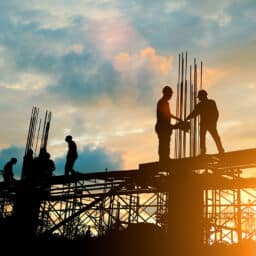
In today’s ever-evolving world, the landscape of commercial construction is experiencing significant transformations. As experts in the industry, we at Hill Commercial believe it’s crucial to stay informed about current trends and make predictions for the future. Join us as we delve into the fascinating world of commercial construction and explore what lies ahead.
Overview of Commercial Construction
Commercial construction encompasses the design, development, and construction of non-residential buildings. These structures serve various purposes, from office spaces and retail stores to industrial facilities and healthcare centers. The importance of commercial construction cannot be overstated, as it shapes the physical environment where businesses operate and communities thrive.
Current Construction Trends
In recent years, we’ve witnessed several noteworthy trends in commercial construction:
- Sustainability: Eco-conscious building practices have gained prominence. Clients are increasingly interested in environmentally friendly designs, energy-efficient systems, and materials that reduce their carbon footprint.
- Technology Integration: The integration of technology is reshaping construction processes. From Building Information Modeling (BIM) for enhanced project visualization to the use of drones for site surveys, technology is streamlining operations and improving efficiency.
- Adaptive Reuse: With a growing focus on sustainability, many old or historic structures are being repurposed rather than demolished. Adaptive reuse not only preserves architectural heritage but also adds unique character to new spaces.
- Wellness-Centric Design: The pandemic has emphasized the importance of health and well-being in commercial spaces. Design elements like improved ventilation, touchless technologies, and flexible layouts are becoming standard.
How Commercial Construction Has Changed in the Last Decade
Over the past decade, commercial construction has undergone significant changes:
- Advanced Materials: The use of innovative construction materials, such as sustainable timber and high-performance concrete, has expanded, offering increased strength, durability, and energy efficiency.
- Prefabrication and Modular Construction: Prefabricated components and modular construction techniques have gained popularity, speeding up project timelines and reducing construction waste.
- Virtual Reality (VR) and Augmented Reality (AR): VR and AR have revolutionized the design and planning stages, allowing stakeholders to visualize projects in 3D and make informed decisions.
How Commercial Construction Will Continue to Change in the Future
Looking ahead, we anticipate several trends that will shape the future of commercial construction:
- Net-Zero Buildings: The push for sustainability will lead to a surge in net-zero energy buildings that generate as much energy as they consume, reducing environmental impact.
- Artificial Intelligence (AI) and Robotics: AI-driven project management, autonomous construction vehicles, and robotic construction workers will improve efficiency and safety.
- Resilient Design: Climate change considerations will drive the adoption of resilient design practices, ensuring buildings can withstand extreme weather events.
Choose Hill Commercial in Centennial, CO
At Hill Commercial, located in Centennial, CO, we are committed to staying at the forefront of these industry trends. Our experienced team specializes in delivering high-quality, sustainable commercial construction solutions tailored to our clients’ needs. As a leading construction company in the Centennial area, we are proud to contribute to the ever-evolving landscape of commercial construction.
Contact us toay to discuss your vision and turn it into a reality.




